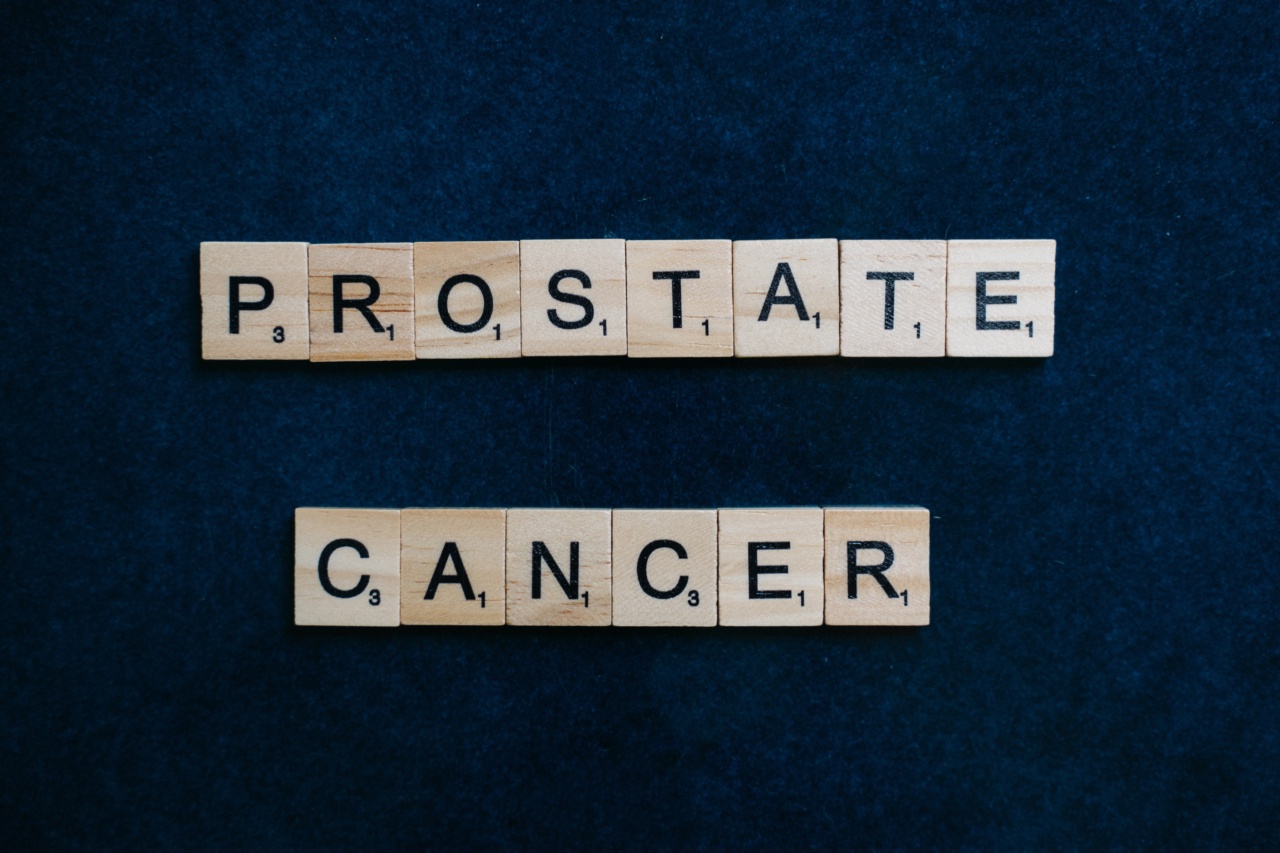Prostate cancer is the second leading cause of cancer in men worldwide. It affects the prostate gland, a small walnut-shaped gland that produces seminal fluid.
While certain risk factors for prostate cancer, such as age and family history, cannot be changed, there are several lifestyle changes and preventive measures you can take to reduce your chances of developing this disease. This article will discuss ten key strategies to help you lower your risk of prostate cancer.
Eat a Healthy Diet
A healthy and balanced diet plays a crucial role in reducing the risk of prostate cancer. Make sure to include a variety of fruits, vegetables, whole grains, lean proteins, and healthy fats in your diet.
Additionally, studies have shown that consuming foods rich in lycopene, a powerful antioxidant found in tomatoes, can lower the risk of prostate cancer. Other foods that are beneficial include green tea, cruciferous vegetables (broccoli, cauliflower, cabbage), and oily fish rich in omega-3 fatty acids.
Exercise Regularly
Maintaining an active lifestyle can significantly reduce your chances of developing prostate cancer. Engaging in regular physical activity helps control weight, improves circulation, and boosts the immune system.
Aim for at least 150 minutes of moderate-intensity exercise or 75 minutes of vigorous exercise each week. Activities like brisk walking, swimming, jogging, cycling, and playing tennis are excellent choices. Remember to consult your doctor before starting any exercise program.
Maintain a Healthy Weight
Obesity has been associated with an increased risk of prostate cancer. Therefore, it is crucial to maintain a healthy weight to lower your chances of developing this disease.
Excess body fat, particularly around the waistline, can promote inflammation and hormonal imbalances that may contribute to cancer development. Follow a well-balanced diet, exercise regularly, and strive to achieve and maintain a healthy body weight to reduce your risk.
Avoid Smoking
Smoking is known to cause many types of cancer, including prostate cancer. If you are a smoker, it is essential to quit smoking to reduce your risk. Smoking introduces harmful chemicals into your body that can damage DNA and promote cancer development.
Seek support from a healthcare professional, enroll in smoking cessation programs, or join support groups to increase your chances of successfully quitting.
Limited Alcohol Consumption
While moderate alcohol consumption may offer some health benefits, excessive or regular heavy drinking can increase the risk of prostate cancer. If you choose to drink alcohol, do so in moderation.
The American Cancer Society recommends limiting alcohol intake to no more than two drinks per day for men.
Get Regular Screenings
Regular screenings and check-ups with your healthcare provider are crucial for early detection and prevention of prostate cancer.
Screening tests, such as the prostate-specific antigen (PSA) blood test and digital rectal exam (DRE), can help detect prostate cancer in its early stages when treatment is most effective. Discuss with your doctor when and how often you should undergo these screening tests based on your age, family history, and overall health.
Manage Stress
Chronic stress and anxiety can weaken the immune system, making your body more susceptible to various diseases, including prostate cancer.
Practice stress management techniques like meditation, deep breathing exercises, yoga, or engaging in hobbies and activities you enjoy. Prioritize self-care, get enough sleep, and surround yourself with a supportive network of family and friends to help alleviate stress.
Stay Hydrated
Drinking an adequate amount of water is essential for overall health, including reducing your risk of prostate cancer. Staying hydrated helps flush out toxins from your body, promotes regular urination, and maintains proper prostate function.
Aim to drink at least 8 glasses of water per day and more if you are physically active or live in a hot climate.
Limit Exposure to Environmental Toxins
Avoiding or minimizing exposure to certain environmental toxins may help reduce the risk of prostate cancer. Chemicals found in pesticides, herbicides, heavy metals, and certain plastics may have carcinogenic effects.
Whenever possible, choose organic foods, use natural cleaning products, and avoid prolonged contact with products that contain harmful chemicals.
Take Vitamin and Mineral Supplements
While it is best to obtain essential vitamins and minerals from a balanced diet, supplements can be beneficial in certain cases.
Studies have suggested that specific supplements, such as selenium, vitamin E, and vitamin D, may help reduce the risk of prostate cancer. However, always consult with your healthcare provider before starting any supplements, as they may interact with medications or have adverse effects.






























